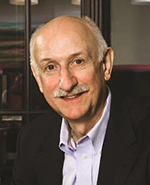
The following are insights from William F. Knese, CMA, CFM, CPA, a retired financial services consultant whose 30-year career in management accounting included serving as the controller and treasurer of a public company and CFO of an employee-owned company. As a longtime IMA® (Institute of Management Accountants) volunteer leader, Knese served as IMA Global Board Chair in 2013-2014 and prior to that, in many other volunteer roles, including chair of the ICMA Board of Regents.
What was your experience preparing for the CMA exam?
Studying for the exam was like a crash course for an MBA and a great knowledge refresher. I took the CMA exam in 1982, when it was a five-part exam, encompassing five fields of testing, some of which have been now replaced by topics more relevant to the current job responsibilities of management accountants.
The exam was a two-and-a-half-day exercise, beginning Wednesday afternoon and running through Friday. In terms of knowledge, I felt like I had just graduated from my MBA studies, although I had been out of school for seven or eight years. And although I was already a CPA, I was able to use this additional certification to demonstrate accomplishment in my new work as a management accountant.
Is there a moment or experience that you are particularly proud of as a personal or professional accomplishment?
I retired as CFO of an employee-owned company. I came up with the idea of buying the company for the employees from a private equity firm. I negotiated the financing, and we purchased the company for the ESOP. Later, I was instrumental in selling the company to a publicly owned company as well. The end result of our employee ownership was a substantial per share increase that created wealth for the employee-owners, and it is that wealth that flowed into the community. This was a company where workers bend and twist to weld and assemble, and whose bodies were mostly shot after a long career. This deal made it possible for them to retire with six-figure ESOP accounts in addition to their 401(k)s.
Do you have a role model and if so, who is it and why?
I don’t have a business role model, as these tend to be successful executives with staffs and other support personnel. Instead, I focus on character traits that make people who they are. I’m inspired by everyday heroes – ordinary people who exhibit great courage and who do extraordinary things, people like Lenny Skutnik and Miep Gies.
In 1982, Skutnik was driving home from work in Washington, D.C., when he saw Air Florida Flight 90 crash into the frozen Potomac River. He pulled over, jumped into the water, and swam to the rescue of one of the passengers, Priscilla Tirado, saving her life.
Gies worked for Otto Frank, father of Anne Frank. At great personal risk, Gies, her husband, and other employees hid the Frank family from the Nazis from 1942-1944. When the family was discovered and arrested, the diminutive Gies went to Gestapo headquarters in an unsuccessful attempt to secure the release of the Franks. She also salvaged the Franks’ papers, including Anne’s diary.
Any advice for those looking for a career/job in accounting or finance?
You may face situations that test ethical resolve and demand courage. And know that as a leader, your actions are always observed.
I was once told by a forceful CEO I worked for to include a large capital expenditure in its budget year, although GAAP measures indicated it should be capitalized in the following year (the year it was completed). Following several animated discussions, I finally told the CEO that he didn’t get to make this decision; that it was mine to make. I was prepared to be let go. Fortunately, he backed down, and we recorded the item in the correct year.
This situation was important in two respects. My staff knew the correct accounting treatment. They also knew the CEO’s penchant for dictating what he wanted. So, it was important not only for me to stand my ground about the proper accounting treatment but also for my staff to see me do so.
Is there a particular quote or life philosophy that has inspired you during your career?
I’ve printed on a business card, and handed out to folks over the years, the following, which I’ve termed “Bill Knese’s Axioms for Leadership & Life”:
- No one is as good or as bad as you think.
- It depends (on facts and circumstances).
- Things change.
- You rarely know the whole story.
- There’s always risk.
- Courage is often required.
- Everyone wants to be recognized.
- Sometimes you get a second chance.
For more information on the CMA, please visit CMA certification.
